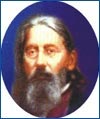Tremor of whole body.
Paralysis of lower limbs, with slight spasms of arms.
Spasmodic motions, from simple involuntary motions and jerks of single muscles, to a dancing of the whole body.
Twitching of eyelids and eyeballs; trembling of legs and hands, debility; soreness of spine; worse at approach of thunder-storm.
Involuntary movements while awake; ceasing during sleep.
Coma following the febrile excitement of dentition; eyes half open, showing the white; breathing not hurried, but often a deep inspiration, followed by a sigh and slight convulsive twitching of extremities.
Cramps in the hands and feet; body convulsed, as if a galvanic battery were applied to the spine.
Sleep
Frequent yawning; before spasms, or paroxysms of headache.
Unusual sleepiness.
Uneasy, restless sleep, from violent itching and burning of the skin.
On falling asleep; starts, twitches; sudden complete awaking.
Awakes often at night, is wide awake.
Time
Morning: Forenoon : Night :.
Temperature and Weather
Very sensitive to cold air.
Chilblains, frost bite.
Approach of thunder-storm: Cold air : Open air: In warm bed :.
Chill Fever Sweat
Great chilliness in the open air, strikes through the whole body.
Chilly on slight movement, or from raising the bed clothes.
Shiverings over the body, running from above down wards.
Heat slight, chiefly on upper part of body.
Sweat : greasy, but not offensive, all night, during sleep; from slight exertion; often only on front of body; at night, especially about legs; cold, on face, neck, chest.
Sides
Symptoms often appear diagonally (right arm, left leg, etc.) Right : Left :.
Sensation
Burning itching and redness of various parts: ears, nose, face, upper and lower limbs, like chilblains.
Pricking as from pains, burning.
Sensation in various parts as if ice touched or as if ice cold needles were piercing the skin.
Corrosive biting now and then on the skin.
Formication, crawling.
Cramp-like pain in muscles, erratic, when sitting.
Tissues
Makes the blood thin.
Veins swollen, with cool skin.
Muscles feel bruised from touch; better from walking.
Pains in long bones, as if bruised after motion.
Pains in bones morning and forenoon, especially left tibia, condyle of left elbow (like syphilitic pains, but better rather than worse in warmth of bed).
Joints feel as if dislocated.
Obesity.
Contact Injuries etc.
Body sensitive to touch or pressure; burning in canthi; pain in spine, between vertebrae, muscles feel bruised; pricking in left thumb.
Worse from touch : After scratching: Slight blows cause ecchymoses.
Skin
Burning itching, redness and swelling, as from frost-bites.
Miliary eruptions close and white, with intolerable burning itching.
Itching stitches in various parts.
Violent itching between thumb and forefinger, left hand.
Stages and States
Light hair; skin and muscles lax.
Old people with indolent circulation.
Venous erythism.
Relationship
Similar to : Actea rac. (delirium of alcoholism); chorea; spinal irritation; Bellad. (cerebral excitement, but more in chorea); ‘ Calcareaostr (alcoholism; icy-cold feeling on head); Cannab Ind (alcoholism; extravagant fancies); Cicut (spasms of eyes); Codein. (eyelids twitching etc.); Coffea (ecstasy); Hyosc. (typhoid of drunkards; loquacity, dancing muscular twitchings, and with all tremor, tendency to stupor and feeble pulse) Ignat (hysterical or emotional chorea; sighing; convulsive cough; twitches; laughing and crying); Laches (Loquacious delirium; alcoholism; typhoid of low type, tremulous protrusion of tongue tremor feeble pulse, livid extremities); Mygale (chorea); Nux. vom (chorea alcoholism; spinal irritation; convulsions; tremor paraplegic symptoms; enlarged liver); Opium (alcoholism; chorea with spasmodic, angular jerks of flexors; hands tremble slow pulse); pulsat (Spinal irritation; chorea; chilblains etc.); Sepia (icy cold feeling on head; jerks of head and tongue etc.), sticta (Chorea with jumping and dancing); Stramon (delirium tremens; singing laughing dancing; extravagant recitals; loquacity; chorea, with gyratory motions etc.); Tarant. (Chorea, one arm and leg constantly in motion); Thea. (Verbose; spinal irritation); ver. alb. (icy cold feeling on head); Zincum (Chorea).
Vinegar and Eau-de-Cologne induce fainting. Sal Ammoniae also aggravates it.
Mushrooms will not grow in ground containing either iron or coal.
Antidoted by: charcoal; coffee; wine; brandy; camphor; fat or oil (relieves stomach); Calc, ostr. (relieves icy-coldness); Pulsat, Rhus tox. (nightly backache).
Atropine is said to be antagonistic to Muscarine, but they both, when topically used, dilate the pupil.
Muscarine is very similar to Pilocarpine (jaborandi), since both cause arrest of heart’s action: profuse sweat, salivation, lachrymation; contracted pupils, etc. Muscarine acts more on the lachrymal glands, less on sweat and salivary glands; Pilocarpine causes more urging to urinate. Muscarine, given internally, contracts the pupil more than Pilocarpine; used topically only the former dilates the pupil. Gelsem. is here similar to Muscarine.
Follow well: Bellad, Calcarea ostr., Mercur., Opium, Pulsat. Rhus tox. and Silicea.
Acted well after Dulcam. Phosph-ac. Pulsat. and Cuprum.
had failed. Chronic diarrhoea.
Cured where Bellad., Stramon. and Hyosc. failed. Clonic spasms of eyes.
Compare in irritable weakness of accommodative apparatus of eye: Physostigma (pain after using eyes, muscae volitantes, flashes of light, twitching of lids and around eyes; myopia); Jaborandi; (spasms of accommodation, vision continually changing; eyes tire easily, are irritable).

